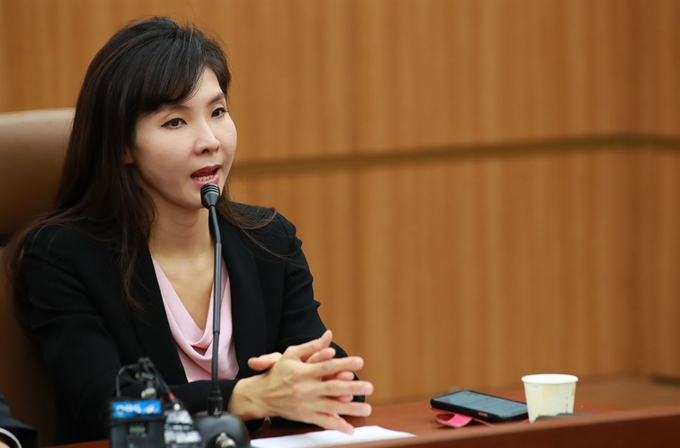 |
Picture of former prosecutor Seo Ji-hyun speaking. (Herald DB) |
Seo Ji-hyun, a former prosecutor who ignited a nationwide #MeToo movement in 2018 with her disclosure of sexual misconduct and abuse of authority by a senior prosecutor, lost a damages suit against him and the state on Thursday.
The Supreme Court upheld the lower courts' decision to reject Seo's claim for compensation from former senior prosecutor Ahn Tae-geun over allegations that he sexually harassed her and abused his authority to retaliate against her in personnel reshuffles.
Seo filed her damages suit in 2018, demanding that Ahn and the state pay her 100 million won ($76,700) in compensation for his alleged sexual harassment and abuse of power.
A lower and appellate court both dismissed her claim, saying the statute of limitations had expired, as it had been more than three years since Seo had acknowledged the damages and accused the assailant of sexual harassment.
The Supreme Court stated that "there is insufficient evidence to confirm that Ahn had deviated from or abused his authority at the time of appointment and lost objectivity." The court cited the same reasoning in its ruling for Seo's damages suit against the state.
"There was no error in the original judgment that affected the verdict, such as misunderstanding of the law on the statute of limitations or terms on abuse of rights," the high court added.
Seo appeared on a nationally televised interview in January 2018, in which she revealed that Ahn groped her during a funeral dinner in 2010 and later reassigned her to an office in the southern coastal city of Tongyeong as rumors of his sexual abuse began to spread within the prosecution.
Ahn was initially charged in January 2019 with a two-year prison term for abusing his authority to disadvantage Seo in a personnel reshuffle in 2015, as well as for sexual harassment of Seo. However, the Supreme Court later overturned the ruling in 2020, acquitting Ahn of all charges.
Seo's disclosure helped fuel a nascent #MeToo movement across South Korea. Previously, victims of sexual violence had long been afraid to speak out for fear of retaliation and public shaming. The interview triggered a series of other women coming forward with accusations of sexual abuse against a slew of prominent men in various sectors, including theater directors, politicians, professors, priests and a former national speed skating team coach.







![[Today’s K-pop] Blackpink’s Jennie, Lisa invited to Coachella as solo acts](http://res.heraldm.com/phpwas/restmb_idxmake.php?idx=644&simg=/content/image/2024/11/21/20241121050099_0.jpg)